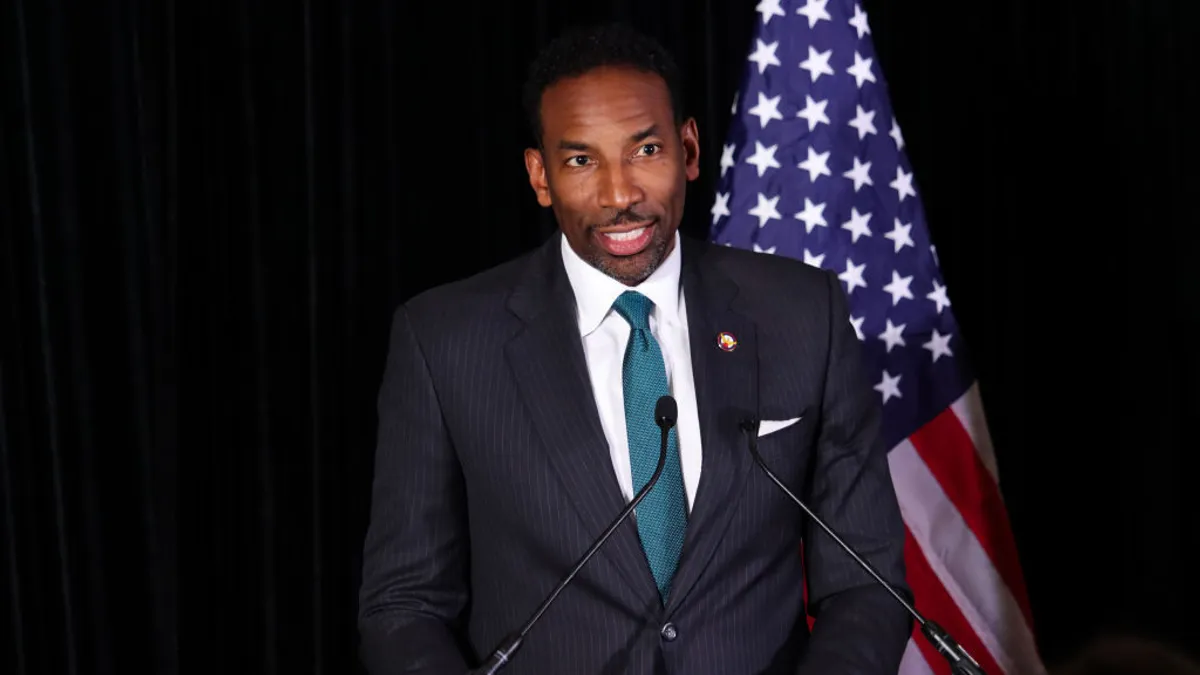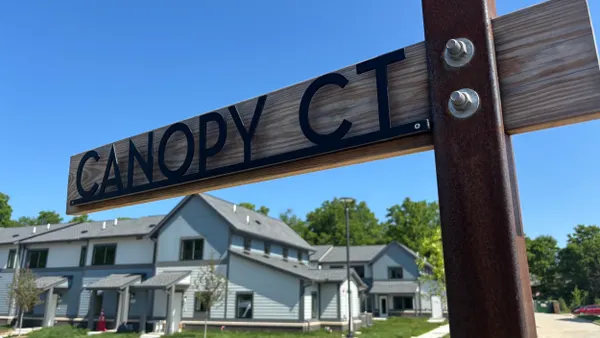Dive Brief:
- Atlanta’s mayor and city council this week proposed a plan to direct $60 million in funding to address homelessness in the city.
- Mayor Andre Dickens proposed a bond that would supply $50 million, while the city council introduced legislation for an additional $10 million that would come from the city’s affordable housing trust fund over six years. The city council also introduced an ordinance to authorize Dickens’ proposed bond.
- If approved by the city council, the money will be used to produce up to 700 affordable housing units, including 500 “quick-delivery” units that will be completed by the end of 2025 and include on-site services for residents. The funding would also support up to 200 permanent supportive housing units.
Dive Insight:
Unsheltered homelessness in Atlanta has shot up by 63% since 2022, according to a point-in-time count conducted earlier this year. In 2022, the city had an unsheltered population of 640; this year that number was 1,040.
Atlanta’s not alone, with many other U.S. communities grappling with rising homelessness. Challenges to addressing homelessness include a lack of affordable housing, understaffed response organizations and politics, according to reports to the National Alliance to End Homelessness from people who work in homelessness response.
Atlanta’s plan focuses on building more housing, and fast. “Housing is a cornerstone of neighborhood infrastructure – just like our streets, sidewalks, transit, and parks,” District 1 Councilmember Jason Winston said in a statement.
The new funding, if approved, will be the largest single investment to address homelessness in Atlanta’s history. The city needs to deploy public and private resources “at a historic scale” to keep up its homelessness response, especially as federal pandemic relief funding dwindles, according to the news release.
This funding plan builds on other efforts to get people experiencing homelessness into housing. Last year, Dickens issued an executive order setting up an initiative to provide “quick-delivery” housing to those experiencing homelessness. That initiative takes advantage of city-owned land and modular buildings to stand up new housing more quickly.











